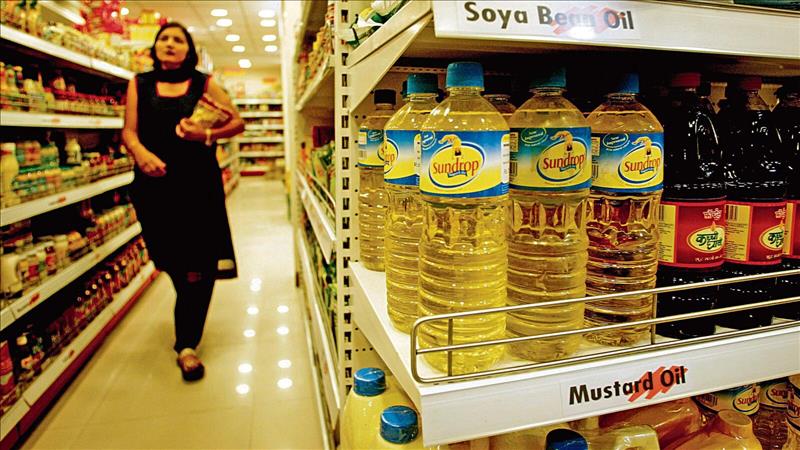
403
Sorry!!
Error! We're sorry, but the page you were
looking for doesn't exist.
Blended Edible Oil Beneficial: FSSAI
(MENAFN- Live Mint) "The Food Safety and Standards Authority of India (FSSAI) has said that banning the blending of edible oils, particularly sunflower oil, has no scientific rationale, as there is no food safety or health concern in consuming them, the food regulator said in a much-awaited report that blending is beneficial for health, and improves the properties of edible oil FSSAI added that there is not enough data to support the idea that banning blended sunflower oil will increase domestic production of sunflower oil. Also, blended edible oil is more affordable, it said inter-ministerial committee was set up last year under the chairmanship of the special secretary in the health and family welfare ministry to review the blending of edible oils in general and sunflower oil in particular came“after the government found through a field survey that there was an increase in mustard oilseed area post the FSSAI's ban on the blending of mustard oil for production of multi-sourced edible vegetable oils (MSEVOs) with effect in June 2021,” a member of the committee said on request of anonymity 2021-22, India is estimated to have produced record-high mustard seeds in the rabi, or winter, crop season of 11.9 million tonnes (mt) against the previous year's 10.2 mt, according to the agriculture ministry FSSAI banned the blending of mustard oil with any oil effective from 8 June 2021 to benefit farmers, provide healthy oil for human consumption and decrease India's dependence on edible oil imports by increasing production.“After the healthy situation of mustard farmers and an increase in mustard seed area and subsequently production, the government thought to use it for other oilseed crops. India imports a lot of edible oil. They thought if they improve the production of other oilseed crops, imports of edible oil could be reduced, and this is the reason why they initiated the programme for sunflower oil,” the committee member explained imports around 25 mt of edible oil, nearly 60% of its total annual domestic consumption. The country primarily imports 8 mt of palm oil, 2.7 mt of soybean oil and 2 mt of sunflower oil produces a negligible amount sunflower seeds and sunflower oil against its consumption per the agriculture ministry's third advance estimate, India produced 204,000 tonnes of sunflower seed in 2022-23 as compared with 111,000 tonnes in the previous year consumption of sunflower oil is 2.5 mt. The huge supply gap is met through imports from countries like Ukraine, Russia and Argentina per the current FSSAI regulations, blending of two edible oils is permitted, provided the proportion by weight of any edible vegetable oil used is at least 20%. Companies are obliged to disclose the blending ratio on the label of the bottle.“The inter-ministerial committee came up with the report, not public yet, and presented its recommendations to the government. It will now be reviewed by the government and a decision will be taken,” the committee member said sent to the FSSAI, the agriculture ministry, the ministry of consumer affairs, food and public distribution, and the ministry of health and family welfare remained unanswered at press time.
Legal Disclaimer:
MENAFN provides the information “as is” without warranty of any kind. We do not accept any responsibility or liability for the accuracy, content, images, videos, licenses, completeness, legality, or reliability of the information contained in this article. If you have any complaints or copyright issues related to this article, kindly contact the provider above.






















Comments
No comment